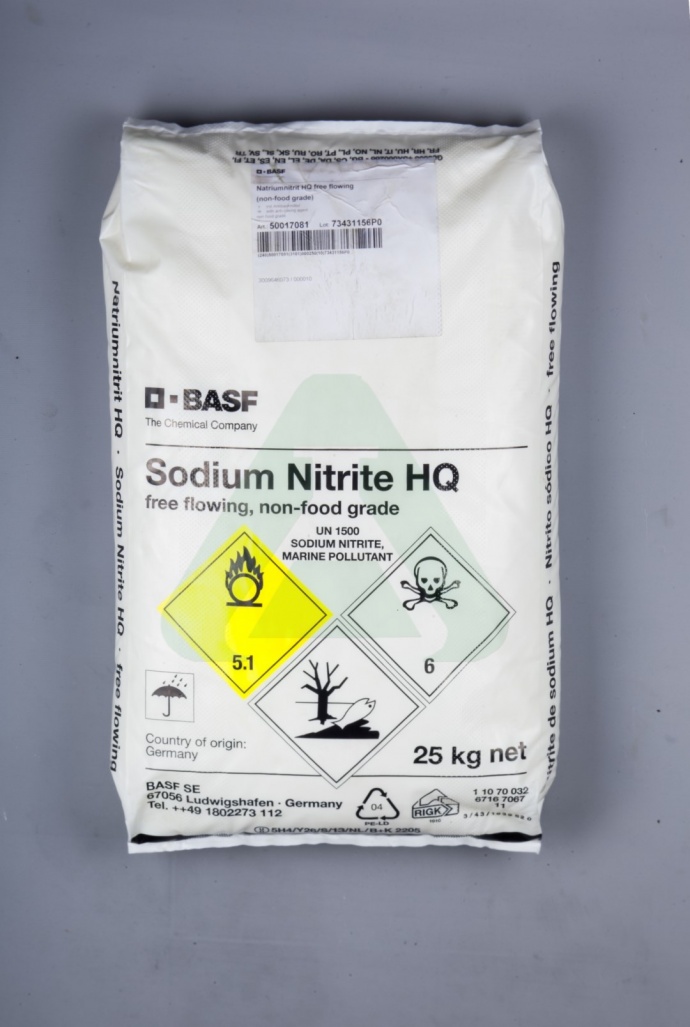clear
1.499 / 5.000
Çeviri sonuçları
Çeviri sonucu
Definition and Areas of Use : Sodium nitrite is a component of heat transfer salts used by many branches of industry such as chemical, petrochemical and metalworking industries. It is easily soluble in water, resulting in weakly alkaline solutions. Preparation of solutions is accompanied by a decrease in temperature. Sodium nitrite is soluble in aqueous ammonia and various organic solvents (such as ethanediol, propanediol and methanol). Sodium nitrite can act as an oxidizing and reducing agent. Iron-steel, Al and many other metals are not decomposed by sodium nitrite and its solutions. The presence of chlorides and sulfates can promote corrosion of metals. Rubber, plastics, glass, porcelain and ceramics are resistant to sodium nitrite solutions. Treatment of sodium nitrite solutions with acids can cause nitric acid to form, which quickly decomposes into nitro gases with a color ranging from pale to dark brown. In deisotization and nitrosation processes, nitric acid can react with other reactants before decomposing to the nitrous oxide phase. At room temperature, it reacts with sodium nitrite, ammonium salts, amides, and mixtures containing these. This reaction can lead to a violent explosion, followed by deflagration. Similar reactions can occur with rapidly oxidizable products such as sodium and potassium metabisulphite. Wool, cotton, and other textile fabrics powdered with sodium nitrite are rapidly flammable.


